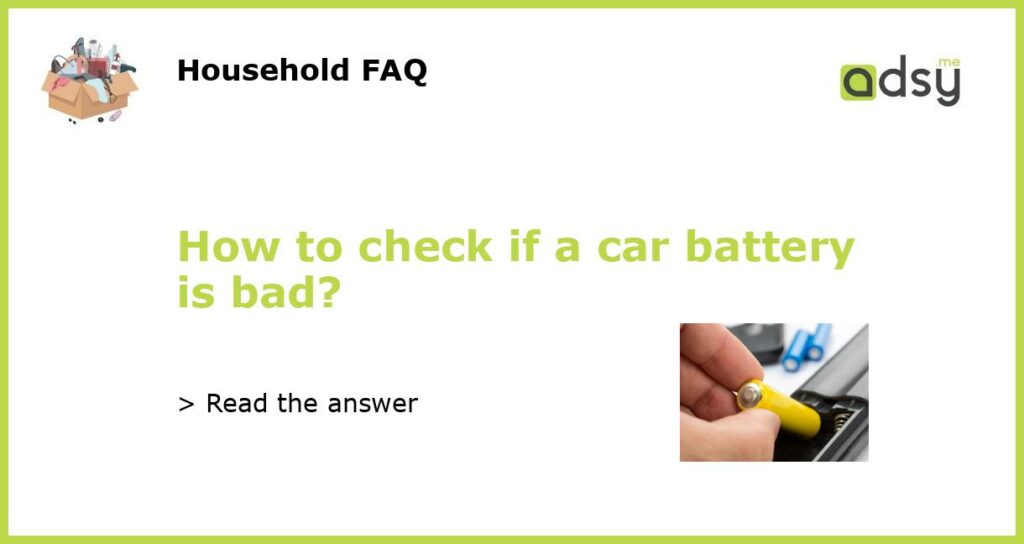Understanding the signs of a failing car battery
A car battery is an essential component that needs to stay in good condition for the car to run smoothly. However, like any other part, it can wear out over time, leading to a host of issues. So, how can you tell if your car battery is bad?
The first thing to look out for is a slow engine crank. If you notice that the engine is taking longer than usual to start, even after multiple attempts, it could mean a failing battery. Additionally, if you experience dimming headlights or interior lights, this could be a sign of a power issue in the battery.
Another way to identify a failing battery is to check for corroded terminals. If the battery posts and connections have accumulated a layer of whitish-blue gunk, it could hinder the flow of electricity to the engine, leading to poor performance.
Methods for testing a car battery
If you suspect that your car battery might be bad, there are several ways to test it. One way is to use a digital multimeter, which measures the battery’s voltage. For this test, you’ll need to set the multimeter to DC volts and connect the positive and negative leads to the corresponding battery terminals. If the voltage reading is below 12.6 volts, it means that the battery is weak and needs to be recharged or replaced.
Another method involves using a load tester, which puts a load on the battery to assess its performance. The tester measures the voltage drop when a load is applied and provides a pass or fail result based on the readings. However, this test requires specialized equipment and should be conducted by a professional mechanic.
Maintaining a healthy car battery
The best way to avoid a bad car battery is through proper maintenance. Regularly checking the electrolyte levels in the battery and topping it up with distilled water when necessary can go a long way in extending its lifespan. Additionally, you can invest in a battery tender, which keeps the battery charged and in optimal condition even when the car is not in use for extended periods.
Furthermore, avoiding short trips and keeping the battery clean are simple yet effective ways to maintain a healthy battery. Short trips can lead to the battery not having enough time to charge fully, while dirt and grime can interfere with the battery’s connections.
When to replace a car battery
If your car battery is several years old or you’ve observed several signs of a failing battery, it’s most likely time to replace it. Generally, car batteries last between three to five years, depending on usage and maintenance. However, extreme temperatures and other factors can cause them to fail sooner.
When replacing a car battery, it’s essential to choose the correct type and size for your vehicle for optimal performance. Additionally, you’ll need to dispose of the old battery properly, as they contain hazardous materials that can be dangerous to the environment and health.
In conclusion
A car battery is an integral part of your vehicle, and keeping it in good condition is crucial to avoid breakdowns and other issues. By understanding the signs of a failing battery, testing it regularly, and practicing proper maintenance, you can ensure that your car battery lasts longer and reduces the chances of unexpected breakdowns.






